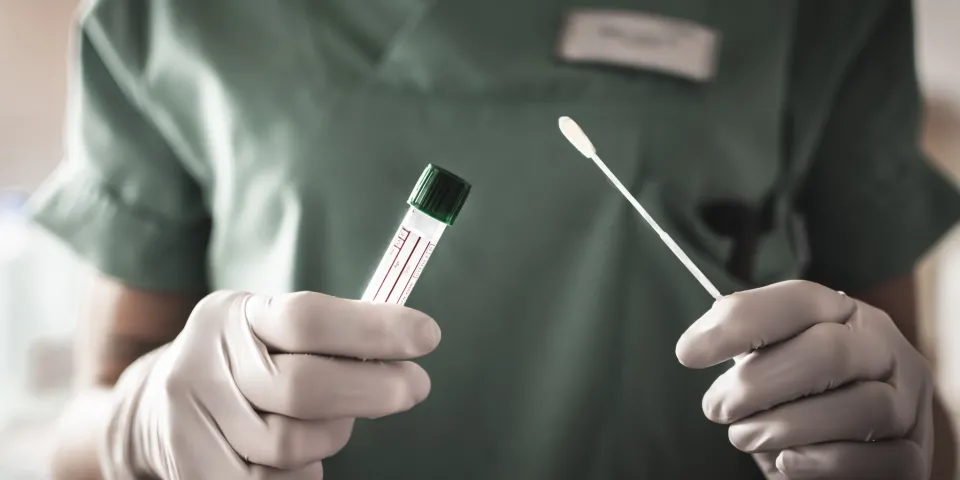Latest
COVID-19 and Medical Assisting
Jan 19, 2021

Medical assistants have always been vital to the healthcare industry, and they’re in high demand right now. According to the Bureau of Labor Statistics (BLS), employment for medical assistants is projected to grow 18% by 2030, which is well above the national average for all careers.
During the coronavirus pandemic, healthcare workers have been on the frontlines, leading patient testing and treatment while addressing the needs of the regular stream of patients. This has exacerbated the need for medical assistants because they play an important role in making sure patients get the best care possible.
Here are a few ways in which medical assistants have made a difference during the coronavirus outbreak:
COVID-19 Screenings
A critical component of the COVID-19 response is controlling the spread and correctly diagnosing patients. When someone thinks they may have come down with the virus, they might call their healthcare provider for a screening. Medical assistants can play a key role in this by answering calls, asking screening questions and then routing suspected coronavirus patients for testing and follow-up care.
Medical assistants could also find themselves conducting at-the-door screenings of incoming patients as a part of their regular duties. This can include taking their temperatures, asking a few screening questions and ensuring they are wearing appropriate face coverings. Since they are one of the first people that patients meet as they come to the door, medical assistants serve to protect both the patients and the entire healthcare organization.
COVID-19 Testing
The Centers for Medicare and Medicaid Services (CMS) published an interim ruling that allows appropriately trained medical assistants to carry out nasopharyngeal (nasal and throat culture) swab COVID testing. While this practice can vary according to demand, location and by specific healthcare organizations, this ruling allows medical assistants to provide services in a sometimes overwhelmed healthcare system.
Telehealth
Many healthcare organizations have had to adopt telehealth practices to provide care to their patients. Telehealth visits allow patients to connect remotely with their doctors and nurses to receive care. Not only is it a safe socially distanced modality, but it’s also convenient for patients who may have scheduling issues, disabilities or live in conditions where they could not otherwise readily access care. While these virtual visits may be led by doctors and nurses, medical assistants can still play a role in telehealth.
The American Association of Medical Assistants (AAMA) noted that while medical assistants are not able to perform assessments, they can help ensure that telehealth visits run smoothly. Medical assistants can.
- Educate patients on telehealth expectations and help prepare a patient for an exam
- Support patient troubleshooting related to the telehealth visit
- Inform the doctor when the patient has “checked in” for the appointment
Regular Responsibilities
In addition to coronavirus-specific duties, medical assistants have many other responsibilities. If you are someone who likes every day to be different, then medical assisting could be a good career for you. Some of their job duties can include, but are not limited to:
- Recording patient history and personal information
- Processing insurance payments
- Measuring vital signs by taking blood pressure, pulse and respiration
- Setting up examination rooms and ensuring that a patient is comfortable
- Scheduling patient appointments and processing insurance payments
- Preparing blood samples and pregnancy tests
- Helping physicians during examinations
A day in the life of a medical assistant can be highly varied, but the role always demands professionalism, attention to detail and empathy. The importance of these responsibilities is not diminished by the pandemic.
Becoming a Medical Assistant
If you are interested in making a difference in the fight against the coronavirus pandemic and would like to play both a hands-on and administrative role, medical assisting could be right for you. Here are three steps to becoming a medical assistant:
- Choose a program. Earning a degree in medical assisting can be a fast way to get started in the healthcare industry. You could earn your medical assisting diploma in as a few as eight months or your associate degree in as few as 20 months.
- Get certified. While not all states require certification, sitting for the Registered Medical Assistant (RMA) and Certified Clinical Medical Assistant (CCMA) exams could give you leverage in your career by signaling to employers that you’re well qualified for the position.
- Advance your career. Medical assisting can provide you with a great foundation to continue your education and advance your career. You could pursue a leadership position or other healthcare jobs by leveraging your experience and earning a bachelor’s degree in health sciences.
Learn More About Our Medical Assisting Program
BLS pay estimates calculate the median annual wage for various occupations. Per the BLS the median wage for an occupation is: "The wage at which half of the workers in the occupation earned more than that amount, and half earned less. Median wage data are from the BLS Occupational Employment and Wage Statistics survey." Bureau of Labor Statistics (BLS), U.S. Department of Labor, Occupational Outlook Handbook 2024. BLS median wage estimates do not represent entry-level wages and/or salaries. Multiple factors, including prior experience, age, geographic market in which you want to work, and degree level and field, will affect career outcomes, including starting salary and earnings as an experienced employee. Herzing neither represents that its graduates will earn the median salaries calculated by BLS for a particular job nor guarantees that graduation from its program will result in a job, promotion, particular wage or salary, or other career growth.
Latest
Recent Blog Posts
Subscribe to our Newsletter
Get the latest news you need to know, from study hacks to interview tips to career advancement. Have it delivered right to your inbox biweekly.








